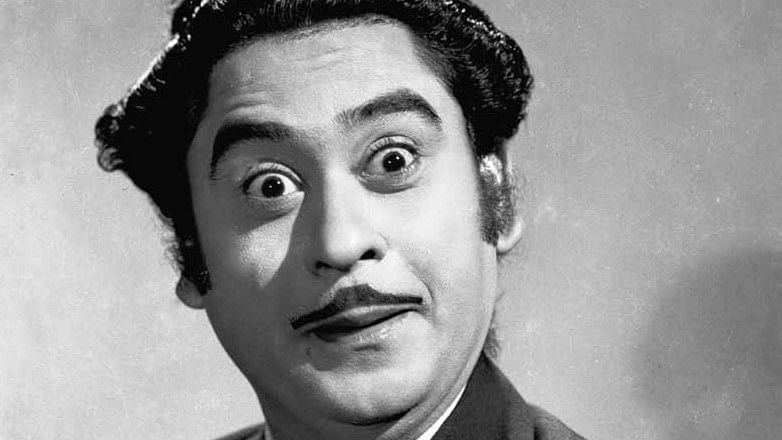
An innately talented person, Kishore Kumar’s naturally great voice expiated his rather untrained voice as he didn’t receive any kind of formal training in classical music. It’s said that no formal training in classical music actually proved to be a blessing in disguise in Kishore’s case. Training often restricts a singer’s spontaneity and exuberance. It also curbs the range of his/her voice. That may be debatable. But there’s no gainsaying the fact that Kishore never let his lack of training become an impediment.
Manna Dey, his contemporary, once said, “Kishore had the best voice of all playback singers. He made singing sound so effortless. He had no classical training but could surpass me in a song because of his wonderful musical instinct and natural singing flair.”
Kishore sang a total of 2,905 songs (including Hindi, Bengali, Gujarati, Marathi, Punjabi,
Odia, Kannada, Malayalam — filmy, and non-filmy). Rafi and Kishore almost simultaneously began their innings in the film industry. Both the stalwarts reached the dizzying heights of success, greatness and popularity. Despite the presence of Manna Dey, Hemant Kumar, Mukesh, Mahendra Kapoor and Talat Mahmood, the kind of phenomenal popularity Rafi and Kishore tasted in their lifetime cannot be articulated.
Kishore was very quick on the uptake and could learn a song very fast. He was an instinctive singer who could sing any song, whether pensive or peppy, with equal aplomb. Listen to his sad song, ‘Teri duniya se hoke majboor chala’ from the film ‘Pavitra Paapi’ (1970) or the sprightly number, ‘Ye wahi geet hai jis ko maine’ (‘Maan Jaiye’, 1972).
His seamless transition mesmerises the listeners. The euphoria in his voice immortalised songs like ‘Mere sapnon ki raani kab aayegi tu’, ‘Ye kya hua kaise hua’, ‘Ruk jaana nahin tu kahin haar ke’, ‘Ye jeevan hai iss jeevan ka’, ‘Mere mahboob qayamat hogi’, ‘Ulfat mein zamane ki har rasm ko thukrao’, ‘Dekha hai zindagi ko kuchh itna qareeb se’, ‘Roop tera mastana’, ‘Hum bewafa hargiz na thay’ to name but a few.
Kishore had a relatable voice. Though almost perfect, he wasn’t unattainably perfect. This quality of his voice endeared him to all and sundry. Many people and upcoming singers imitate Kishore’s hummable numbers because his voice can be imitated rather easily. That doesn’t mean Kishore had an ordinary or banal voice. His magnificent voice carried a sort of neighbourhood familiarity which was likeable as well as affable.
Since he was also an actor par excellence, he could modulate his voice at will. Despite Rafi’s greatness, it was Kishore who ruled from 1970 till he breathed his last in 1987. There’s no doubt about the fact that
Rafi played second fiddle to Kishore in the 70s. Yet, there
was no bad-blood or rivalry
between the two greats. They appreciated each other. It was the media that vitiated their bond. Call it a quirk of fate, both the legends left the world in their 50s. Rafi passed away at the age of 55 and Kishore was 58 when death’s hands took him away.
Kishore was a genius, an eccentric genius at that, whose songs will remain ensconced in the hearts of his countless admirers.
Take a bow, maestro on your 95th birthday!